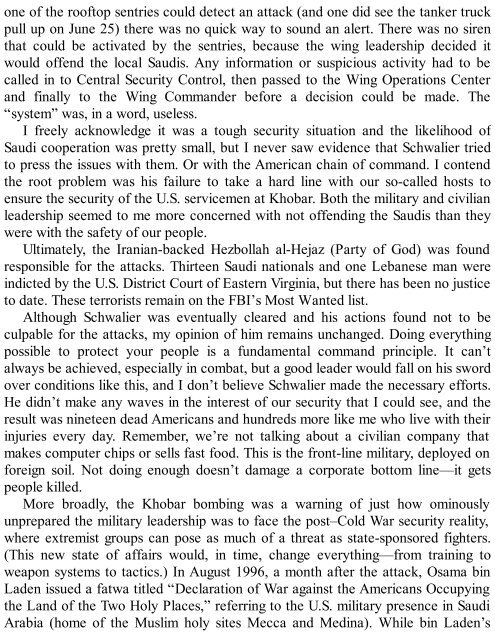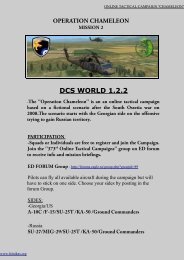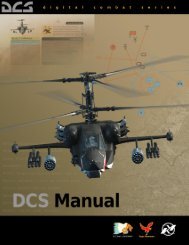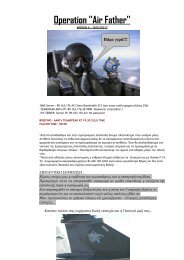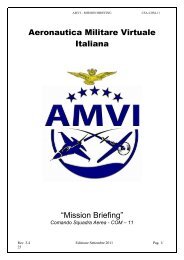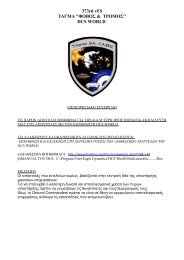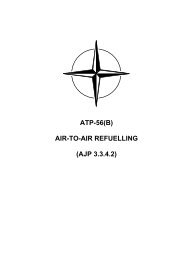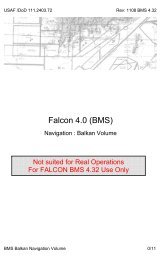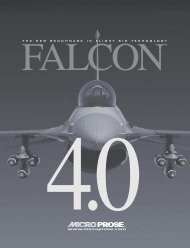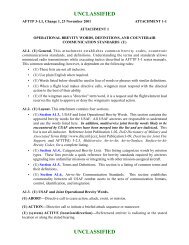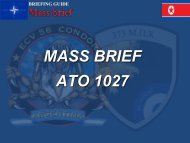You also want an ePaper? Increase the reach of your titles
YUMPU automatically turns print PDFs into web optimized ePapers that Google loves.
one of the rooftop sentries could detect an attack (and one did see the tanker truck<br />
pull up on June 25) there was no quick way to sound an alert. There was no siren<br />
that could be activated by the sentries, because the wing leadership decided it<br />
would offend the local Saudis. Any information or suspicious activity had to be<br />
called in to Central Security Control, then passed to the Wing Operations Center<br />
and finally to the Wing Commander before a decision could be made. The<br />
“system” was, in a word, useless.<br />
I freely acknowledge it was a tough security situation and the likelihood of<br />
Saudi cooperation was pretty small, but I never saw evidence that Schwalier tried<br />
to press the issues with them. Or with the American chain of command. I contend<br />
the root problem was his failure to take a hard line with our so-called hosts to<br />
ensure the security of the U.S. servicemen at Khobar. Both the military and civilian<br />
leadership seemed to me more concerned with not offending the Saudis than they<br />
were with the safety of our people.<br />
Ultimately, the Iranian-backed Hezbollah al-Hejaz (Party of God) was found<br />
responsible for the attacks. Thirteen Saudi nationals and one Lebanese man were<br />
indicted by the U.S. District Court of Eastern Virginia, but there has been no justice<br />
to date. These terrorists remain on the FBI’s Most Wanted list.<br />
Although Schwalier was eventually cleared and his actions found not to be<br />
culpable for the attacks, my opinion of him remains unchanged. Doing everything<br />
possible to protect your people is a fundamental command principle. It can’t<br />
always be achieved, especially in combat, but a good leader would fall on his sword<br />
over conditions like this, and I don’t believe Schwalier made the necessary efforts.<br />
He didn’t make any waves in the interest of our security that I could see, and the<br />
result was nineteen dead Americans and hundreds more like me who live with their<br />
injuries every day. Remember, we’re not talking about a civilian company that<br />
makes computer chips or sells fast food. This is the front-line military, deployed on<br />
foreign soil. Not doing enough doesn’t damage a corporate bottom line—it gets<br />
people killed.<br />
More broadly, the Khobar bombing was a warning of just how ominously<br />
unprepared the military leadership was to face the post–Cold War security reality,<br />
where extremist groups can pose as much of a threat as state-sponsored fighters.<br />
(This new state of affairs would, in time, change everything—from training to<br />
weapon systems to tactics.) In August 1996, a month after the attack, Osama bin<br />
Laden issued a fatwa titled “Declaration of War against the Americans Occupying<br />
the Land of the Two Holy Places,” referring to the U.S. military presence in Saudi<br />
Arabia (home of the Muslim holy sites Mecca and Medina). While bin Laden’s


